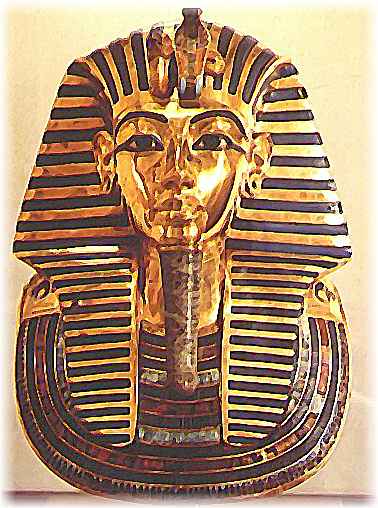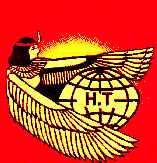  BASIC TIPS FOR A PLEASANT STAY IN EGYPT: Passports & Visas: Citizens of The United States, United Kingdom, Canada and European Union countries will be issued with a visa at Cairo airport if required. There is a charge of $15 (U.S.) for this service (fiscal stamp available at Thomas Cook exchange office, at arrivals). Get you stamp ready before crossing the Immigration. All other travellers should obtain a visa from the Egyptian Consulate in their own country (local charges may apply). Health Precautions: A good quality sun block or lotion is essential during the summer months. A hat is advisable, particularly while travelling in Upper Egypt. Anti diarrhoea medication may be a worthwhile addition to the travellers luggage. Bottled drinking water is recommended
and is widelyavailable in shops and super-markets.
DO & DON'T: * Take lots of film, there is heaps to photograph * Expect to be hassled by people wanting to act as guides - they are very poor and have to make money somehow and at least its better than outright begging. When they see your camera they will tell you they can take you to places which most people dont get to and which are great spots for photos. Simply hire a guide (to HAMIS TRAVEL, for instance): it will stop all the hassling, because your guide defends his turf. Morever (if honest, and not to much on a deal with the merchant), he can bargain stuff for you. * In a lot of the temples and tombs, tripods are just not allowed. Or, considered a professional, you might have to pay hefty fees for permits. * Same applies for flash, basically it is not allowed so as to protect the artwork. Take some 800 ASA films with you. *Take a polarising filter and a neutral density filter if you have one. There is lots more light there than you are used to in Western Europe, and it can be quite harsh. * DO avoid the Egyptian summer: there are not too many tourists, but it got so hot that a retreat to the hotel pool -or better: airconditioned room!- will be necessary by 1.00 pm. The very best season extends from February to April (though high peak, with crowds of tourists and more expensive services). * The further south away from Cairo you go, the less you get hassled. The store traders will invite you in, but if you politely decline they take it in their stride. * Pack your patience and tolerance: you will need it. Don't be shy at ticket boxes at railway stations, Its a bit of a free for all, so if you don't get a little pushy, you wont get served (don't be rude though). * Keep smiling - Egyptians are lovely people and enjoy a chat and banter. * Always haggle when buying something: it is expected. But only haggle if you intend to buy. Engaging in a haggle is an indication you want to purchase. If you haggle then walk away without buying, its very bad form and you will cop abuse from shop owners. Be tollerant in the haggle and keep smiling: it can be a lot of fun. You have a great exchange rate with the Egyptian Pound: so keep it all in perspective. * Luxor is wonderful. Don't miss the temple, Valley of the Kings and Hatshepsut's Temple. Stay at the WINTER PALACE: a Victorian palace-hotel managed by the French group ACCOR. You feel like you will cross the ghost of Agatha Christie in the corridors! (just avoid its new wing, called "New Winter Palace": modern and charmless). * Don't miss Abu Simbel - its one of the most amazing places you'll ever see. * In Aswan,
take a feluca ride on the Nile, around the Elephantine Island. It is very
relaxing, and the beauty of the place is amazing. Stay at the OLD
CATARACT! This is one of the most beautiful palace hotel not only of
Egypt; but of the world.
* We never felt as though we were going to be robbed or mugged. Be cautions anyhow: don't flash your wallet around, care about you pockets when visiting crowdy areas (baazars, shopping malls, popular monuments...). Leave your valuables in the hotel safety box. Don't take too much cash with you: life is cheap, and many shops, restaurants and hotels accept credit card (keep a copy of your receipts, as some merchants have been reported of cheating AMEX or VISA card members). * Negotiate
a taxi fare BEFORE you get in and pay once you have
stepped OUT.
CAIRO: "Ya haraami!" The
young Egyptian man, in a blinding green-and-purple shirt and spotless black
trousers, gestures sharply as he steps out of the cab. The taxi driver
barks a reply which is lost in the noise of traffic. All around,
cars jerk and slide in and out of the strange organism that is Cairo traffic.
The smell of petrol and exhaust fumes complement the towering apartment
blocks and the heat haze which radiates from the
"Haraami" means "thief" in Arabic, and it is not unknown to hear the word shouted at taxi drivers in Egypt. Foreigners have even more reason to use it, yet it is difficult to avoid this particular form of transport. Locals pack the city buses to the gills, the "made in France" underground Metro is good but limited in its destinations, and driving is a daunting prospect in the anarchy that is Cairo traffic. No, the Cairo taxi is a challenge that you must face. How does the system work? There are no companies to call and book a cab with, just thousands of distinctive black-and-white vehicles plying the streets. Some are bright and new, some the worse for wear, some seemingly held together by wire and a prayer. To catch one, stand at the side of the road and signal, or just yell your destination to a passing driver. He will decide if he wants to take you; if so, hop in. Single women should sit in the back to avoid marriage proposals. Here comes the tricky part. All Egyptian taxis have meters -- they just don't use them. Most are set on an unrealistically low official rate or don't work. You must know the generally accepted fare to your destination, and have the correct change ready in your pocket. When you arrive, step out of the cab, close the door, hand the cash through the open window, say "shukran" (thanks) and stroll briskly away. This makes it difficult for the driver to stop and argue with you. No easy feat on a busy, congested Cairo street, so he has no choice but to drive on. Easy, isn't it? Unfortunately, they don't always stick to the script. Some drivers, seeing an "agnabi" (foreigner), assume that you have stacks of cash and no knowledge of the proper fares. They start by quoting a ridiculous figure, expecting you to passively agree. You are quite within your rights to insist on the proper fare. The ensuing conversation can include haggling, sarcasm ("We want to go downtown, not to Alexandria") and sometimes halting the taxi and getting out. An effective alternative is stating your price then refusing to talk to the driver at all until you reach the destination. This works well, as it's hard to argue with someone who doesn't reply. The best way to avoid such a conflict is to never catch taxis outside hotels or tourist sites. If you can speak a little Arabic to drivers as well, even better. This helps establish your credentials as a person who wasn't born yesterday. This article may make it sound as if catching taxis in Cairo is a constant hassle. It isn't. Not all drivers will argue over the amount, and many will offer unsolicited gifts (cigarettes, for example) and be genuinely friendly. It's just that a ride with a "haraami" is far more memorable. There is a positive side to any hassle too: it makes for a good travel anecdote later. Note anyhow, as a rough information, that you are not expected to pay more than EGP 40 for the classical airport - city center ride. Add about EGP 20 if your hotel is located in the Pyramids district (35 kilometers away from the airport). City-Pyramids will not be more than EGP 30. A five to ten minutes ride in the city center should not excess EGP 10. For EGP 50 - 100 (depending if you stay in Cairo, or wish to visit the surroundings), including fuel, it is fairly possible to rent a taxi for the whole day; which is an easy and good value for money solution. Those rates were valid during our last visit to Egypt, on February 2002. TOURS: CLASSICAL TOUR OF CAIRO: 1.The Pyramids of Giza & the Sphinx. 2.The Egyptian Museum. 3.Saqqara and Memphis. 4.Coptic Sites: the Hanging Church, the Coptic Museum, St. Sergius Church. ISLAMIC CAIRO: 1. Mosque of Sultan Hassan, Mosque
of Refa’i, the Citadel and Mosque
2. Baazar Khan Al Khalili
A MUCH RECOMMENDED TOUR OPERATOR: During our last stay in Cairo, we used the excellent services of HAMIS TRAVEL. Warmly recommended in the "LONELY PLANET: EGYPT" travel guides, this is indeed one of the most efficient and honest tour operator in Egypt. Anny Abou Shaady, a gentle Dutch lady, knows fairly well what his western clients want -or might- see in Cairo and any part of Egypt. A rich variety of programs has been tailored made for groups and individuals. We could see by ourselves, from the assistance and pick up at airport before immigration control (any visitor should ask for it: it saves times and money, and assures maximum security), that HAMIS TRAVEL team is one of the most qualified we ever met in Egypt: the highly educated multilingual personnel is able to deal with any situation or requirement in the most efficient and professional manner. Always with a smile. The all staff prides itself with a long experience in the local industry of travel and tourism: matching top international standards. HAMIS TRAVEL comes with our insisting recommendation: its high quality services will definitely meet the expectation of the most exigent travellers. HAMIS TRAVEL:
RAMSES RAILWAYS STATION, RAMSES SQUARE , CAIRO
 Entry to the most interesting sites and monuments (in Egyptian Pounds): CAIRO: Agricultural Museum
SURROUNDINGS OF CAIRO: Saqqara
The preliminary reading of a good guide is indeed recommended. Atop our favourites ranks the excellent “LONELY PLANET: EGYPT”. In addition to the formidable surplus of information relating to the culture, the religion and the tourist resources of the country, we particularly liked the widening focus of Lonely Planet guides: tips are now aiming everybody . The traveller on a very tight budget, just like the one able to draw liberally from his reserves of dollars, will both find custom tailored information in this Bible: from the suburban hostel to the best duplex suites at the SOFITEL LE SPHINX in Cairo, from the metro to the best tour operators like HAMIS TRAVEL (warmly recommended , or from the picturesque kebabs restaurants in Khan Al Khalili to the top class awarded restaurants.  |
||
 FIRST
CLASS AROUND THE WORLD FIRST
CLASS AROUND THE WORLD |
